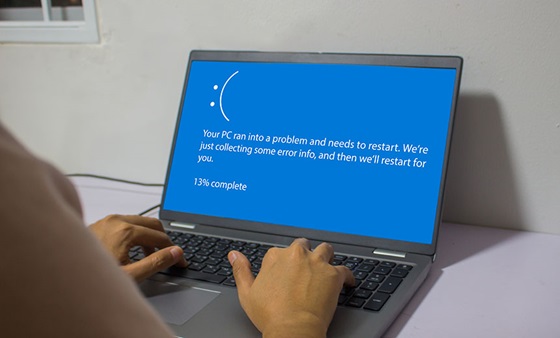GPs couldn't treat patients, people were stranded as planes couldn't get off the ground, and small businesses lost thousands in sales.
Two months on from the global IT outage on 19 July, the full impact is still only now becoming apparent.
A rogue software update by the US cybersecurity company CrowdStrike crippled up to eight and half million computers using Microsoft systems around the world.
Adam Meyers - a senior manager at CrowdStrike - will testify at the US Congress on Tuesday to explain what happened and how the company is going to prevent another disaster.
Dr David Wrigley, a GP for the past 22 years, tells the BBC that in the most serious cases, it resulted in possible delays for cancer treatments.
"It was a very difficult period of time with very little help and support," he said.
For many GPs, they were unable to use the EMIS system - a digital way of managing appointment bookings and patient records, as well as sending prescriptions to pharmacies.
The BMA said the CrowdStrike outage was "one of the toughest single days in recent times for GPs across England", with doctors forced to return to pen and paper.
At Dr Wrigley's practice, computer problems continued between Friday and Monday.
He said this created a backlog that delayed urgent tasks such as writing referral letters for patients with suspected cancers.
In some cases, this would have been delayed by "three or four days".
"You have to prioritise those and send them as soon as possible," he said.
"All the referrals we do are done electronically - that couldn’t happen."
Elsewhere, the BMA said there were also major problems in Northern Ireland.
Around 75% of GPs in Northern Ireland use the EMIS system according to Dr Frances O'Hagan, the chair of BMA’s Northern Ireland GP committee.
"We couldn't do anything for most people," she said.
"We just had to take it on the chin and get on with it."
She said GPs in Northern Ireland faced similar backlogs to colleagues in England, including a delay to suspected cancer referrals.
The Department of Health told the BBC it is in discussion with "external suppliers" to strengthen "continuity arrangements" following the CrowdStrike outage.
It says GPs had access to "local copies" of patient data from EMIS during the outage, and all other systems worked.
Professor Kamila Hawthorne, Chair of the Royal College of GPs, told the BBC it was "crucial" that there should be "safeguards in place" in the future.
In Surrey, 50 patients who were due to receive radiotherapy treatment on the day of the outage were forced to reschedule.
A spokesperson from NHS Royal Surrey Trust said all urgent cases were seen within 24 hours.
NHS England did not comment.
The UK government told BBC News contingency plans were quickly enacted, and said it is working with NHS England to help prevent similar incidents.
BBC





